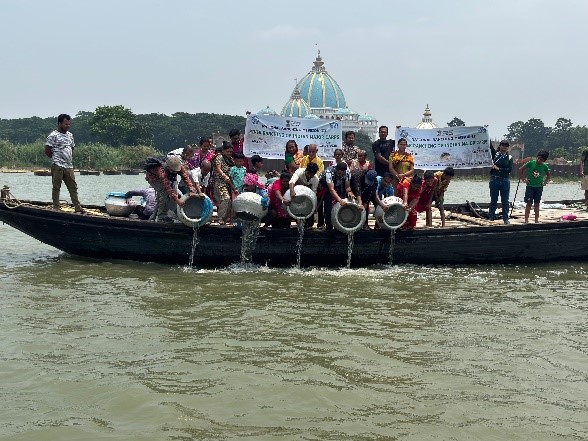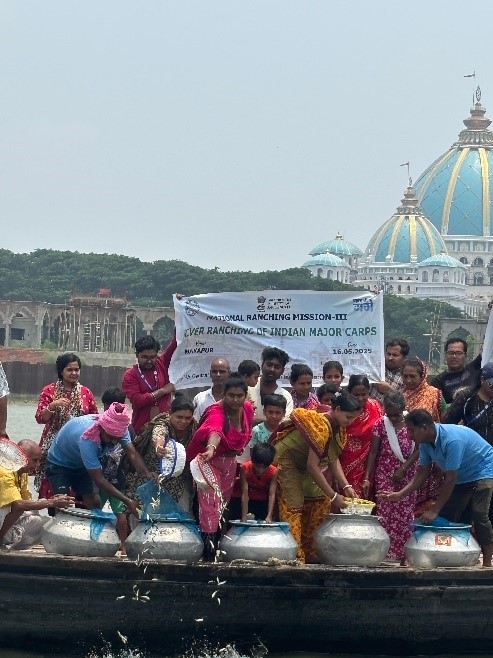Overview
Publications
Recruitment
Intranet
CIFRI Corners'
In accordance with the National Ranching Mission III, ICAR-Central Inland Fisheries Research Institute in Barrackpore executed a river ranching initiative under the National Mission for Clean Ganga (NMCG) at Prabhupada Ghat, Mayapur, West Bengal, on 16 May 2025, marking a substantial advancement in sustainable fisheries and the conservation of riverine biodiversity. The primary aim of river ranching is to restore the diminished fish populations of the river, augment fisheries resources for local communities, and foster ecological equilibrium in the Ganga river system.


These initiatives not only sustain the livelihoods of fishers but also advance the overarching objectives of river restoration and biodiversity preservation. ICAR-CIFRI remains crucial in the restoration of fish populations by scientific interventions and community involvement.










